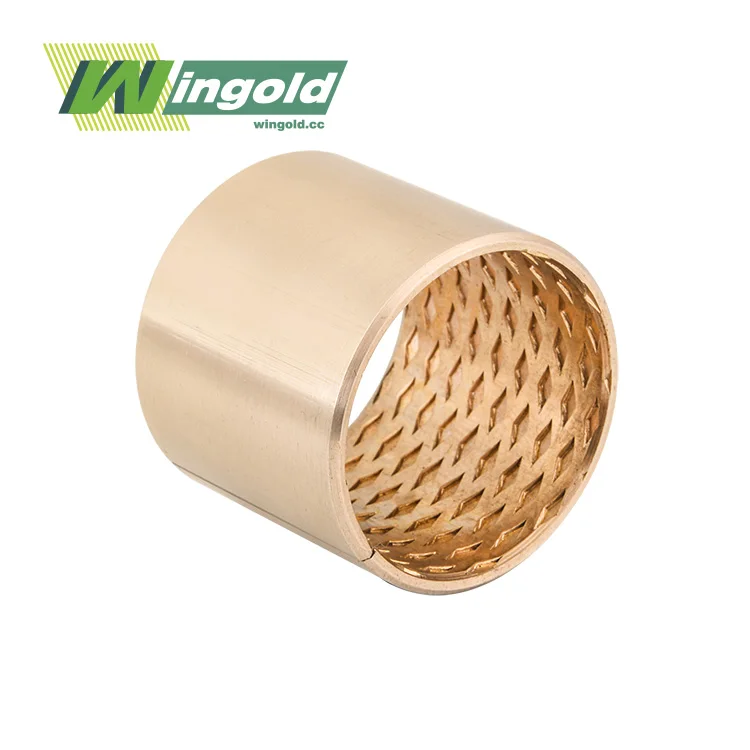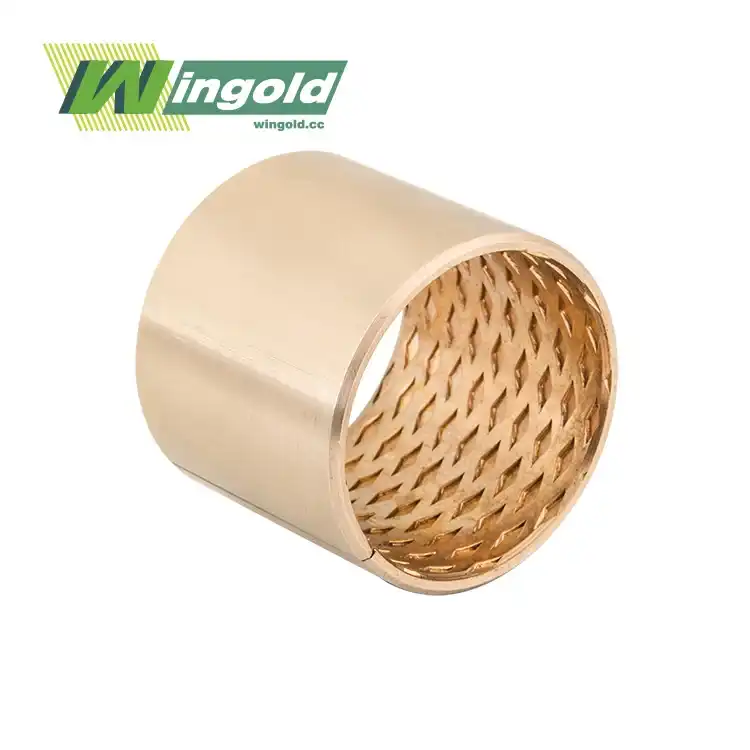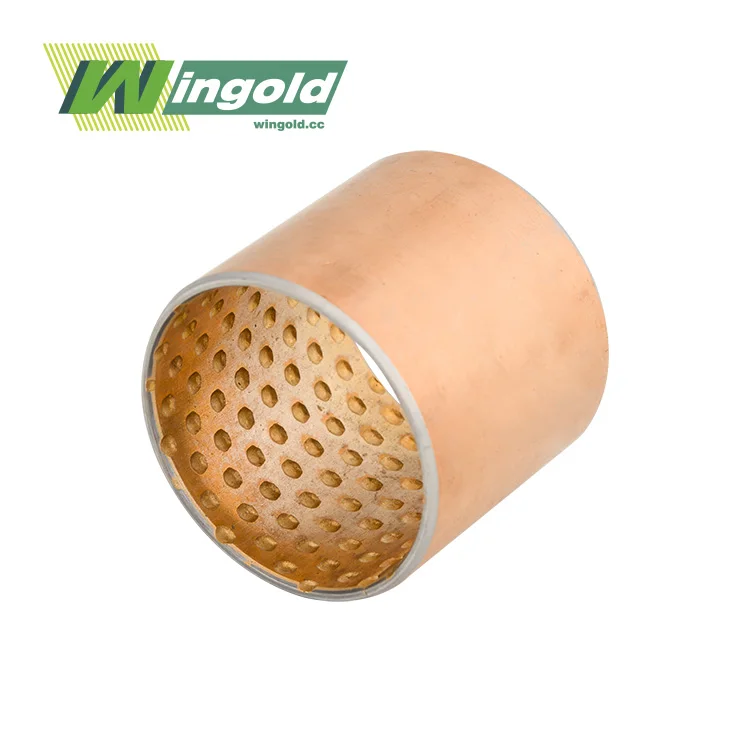The Science Behind Polymer Bearings Plain
Material Composition and Properties
Polymer bearings plain are crafted from high-performance polymers, carefully selected for their exceptional properties. These materials often include polytetrafluoroethylene (PTFE), polyethylene (PE), and polyoxymethylene (POM). The unique molecular structure of these polymers allows for inherent lubrication properties, eliminating the need for external lubricants.
One of the key advantages of polymer bearings is their low friction coefficient, typically ranging from 0.03 to 0.25. This is significantly lower than traditional metal bearings, which can have friction coefficients up to 0.5 or higher. The reduced friction translates directly into improved efficiency and reduced wear on mating surfaces.
Self-Lubricating Mechanism
The self-lubricating nature of polymer bearings plain is a game-changer in many industries. This mechanism works through the transfer of a microscopically thin film of polymer material to the mating surface during operation. This transfer film acts as a lubricant, continuously replenishing itself as the bearing operates.
In some advanced polymer bearings, such as those offered by Wingold Bearing, the structure consists of a steel back with sintered porous bronze powder and modified polyformaldehyde (POM). This multi-layer design, complete with oil indentations, further enhances the self-lubricating properties and extends the bearing's service life.
Load Capacity and Durability
Despite their lightweight nature, polymer bearings plain can handle impressive loads. High-performance polymer bearings can withstand loads up to 140 MPa, making them suitable for a wide range of applications. The durability of these bearings is further enhanced by their resistance to chemicals, corrosion, and extreme temperatures, with some capable of operating in ranges from -40°C to +150°C.
Applications and Benefits of Polymer Bearings Plain
Versatility Across Industries
The unique properties of polymer bearings plain make them ideal for a diverse range of applications. They excel in environments where traditional metal bearings might fail, such as those exposed to chemicals, moisture, or extreme temperatures. Industries benefiting from polymer bearings include:
Automotive: Used in chassis components, reducing weight and improving fuel efficiency.
Manufacturing: Applied in forging machine tools and metallurgical machinery for improved performance.
Heavy Industry: Utilized in engineering machinery and steel rolling equipment for durability in harsh conditions.
Energy Sector: Employed in water and electrical systems for their corrosion resistance.
Efficiency Improvements
The adoption of polymer bearings plain leads to significant efficiency improvements in various ways:
Reduced Energy Consumption: Lower friction coefficients mean less energy is wasted overcoming friction, leading to more efficient operation of machinery and vehicles.
Decreased Maintenance: The self-lubricating nature of polymer bearings eliminates the need for regular lubrication, reducing maintenance downtime and costs.
Extended Equipment Life: By reducing wear on mating surfaces, polymer bearings can significantly extend the operational life of machinery and components.
Environmental Benefits
Polymer bearings plain also offer environmental advantages:
Elimination of Lubricants: The self-lubricating property means no external lubricants are needed, reducing the risk of environmental contamination.
Weight Reduction: In automotive and aerospace applications, the use of lightweight polymer bearings contributes to overall weight reduction, leading to improved fuel efficiency and reduced emissions.
Longer Lifecycles: The durability of polymer bearings means fewer replacements over time, reducing waste and resource consumption.
Advancements and Future Trends in Polymer Bearing Technology
Innovative Materials and Designs
The field of polymer bearings is continually evolving, with researchers and manufacturers like Wingold Bearing pushing the boundaries of what's possible. Some exciting developments include:
Nano-enhanced Polymers: Incorporating nanoparticles into polymer matrices to further improve strength, wear resistance, and self-lubricating properties.
Biobased Polymers: Developing environmentally friendly polymer bearings from renewable resources, aligning with sustainability goals.
Hybrid Designs: Combining the benefits of polymer and metal bearings in innovative hybrid structures for optimal performance in specific applications.
Smart Bearing Systems
The integration of smart technologies with polymer bearings plain is opening new possibilities:
Embedded Sensors: Incorporating miniature sensors into polymer bearings to monitor performance, predict maintenance needs, and optimize operation in real-time.
Self-healing Materials: Developing polymer bearings with self-healing capabilities to extend service life and reduce maintenance requirements even further.
Expanded Application Areas
As polymer bearing technology advances, new applications are emerging:
Aerospace: Lightweight, high-performance polymer bearings are finding increased use in aircraft components.
Medical Devices: The biocompatibility of certain polymers makes them ideal for use in medical implants and equipment.
Renewable Energy: Polymer bearings are being adapted for use in wind turbines and solar tracking systems, improving efficiency and reliability in these growing sectors.
Conclusion
Polymer bearings plain have proven to be a transformative technology in the field of mechanical engineering, offering substantial benefits in friction reduction and efficiency improvement. Their unique material properties, self-lubricating mechanisms, and versatility across various industries make them an invaluable component in modern machinery and equipment. As research continues and new applications emerge, the future of polymer bearings looks bright, promising even greater advancements in efficiency, durability, and sustainability.
For those interested in exploring how polymer bearings plain can benefit their specific applications, Wingold Bearing offers customized solutions and expert guidance. With a commitment to innovation and quality, Wingold Bearing is at the forefront of polymer bearing technology, providing solutions that meet the evolving needs of industries worldwide. To learn more about our products and services, please contact us at info@wingold.cc
.
FAQs
What are the main advantages of polymer bearings plain over traditional metal bearings?
Polymer bearings offer self-lubrication, lower friction, corrosion resistance, and lightweight properties, leading to reduced maintenance, improved efficiency, and longer service life in many applications.
Can polymer bearings withstand high temperatures?
Yes, many high-performance polymer bearings can operate in temperatures ranging from -40°C to +150°C, making them suitable for a wide range of environmental conditions.
Are polymer bearings environmentally friendly?
Yes, polymer bearings are considered more environmentally friendly due to their self-lubricating nature, which eliminates the need for external lubricants, and their potential for longer service life, reducing waste.




